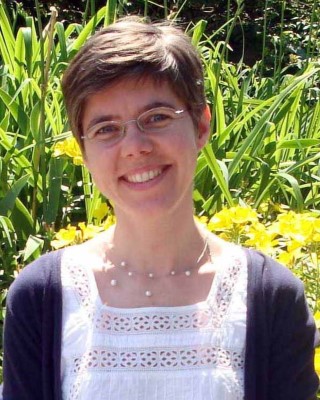 Thora Herrmann is scientific project leader at the Institute of Advanced Sustainability Studies (IASS), Potsdam (Germany).
Thora Herrmann is scientific project leader at the Institute of Advanced Sustainability Studies (IASS), Potsdam (Germany).
She received her Doctorate in geography from the University of Oxford (United Kingdom). She holds a Diplôme d’Études Approfondies in biodiversity conservation and sustainable development from the Université de Paris-Sorbonne (France).
As cultural geographer, Thora is working since 1999 with Mapuche in Chile, since 2006 with First Nations in Québec, and with Sámi in Northern Europe on impacts of environmental change, such as climate change and extractive industries (mining, forestry), and place-people relationships as well as biocultural diversity conservation, according to two complementary axes:
1) the influence of changing environment on societies at sociocultural levels;
2) the forms of values, knowledge and use practices of the environment by societies.
She uses filmmaking as a tool for Indigenous research that addresses issues of concern for indigenous communities through the eyes of their youth.
She is co-editor (with Thibault Martin) of the forthcoming book “Indigenous Peoples Governance of Land and Protected Territories in the Arctic” (Springer) and (with Sophie Gergaud) of the forthcoming book “Cinemas Autochtones: des représentations en mouvement" (GITPA), and (with Leena Heinämäki) of the book “The Sacred Arctic: Experiencing and Protecting Sacred Natural Sites of Sámi and other Indigenous Peoples in Northern and Arctic Regions" (Berghahn, under review). Prior to joining the University, Dr. Herrmann worked at the United Nations headquarters in New York, in the Division for Sustainable Development, where she worked within the UN Interagency Task Force on Gender and Water, and co-organized the UN International Decade for Action ›Water for Life‹ 2005–2015. Previously, Dr. Herrmann worked at the German Development Agency GIZ where she coordinated interdisciplinary research projects in Asia, Africa and Latin America, designed to elaborate and disseminate ecological knowledge and concepts for protecting tropical ecosystems and ensuring their sustainable use. She was awarded a Canada Research Chair in Ethnoecology and Biodiversity Conservation (2006-2011). Dr Herrmann is a founding member of the International Network of Aboriginal Audiovisual Creation (RICAA), of the UNESCO-CBD Bio-cultural Diversity Group, of the Centre for Indigenous Conservation and Development Alternatives (CICADA). She is active member of the Indigenous peoples' and community conserved territories and areas (ICCAs) Consortium of the IUCN, the Quebec Centre for Biodiversity Science (QCBS), and of the Research Centre for Environmental Education (CentrERE).
